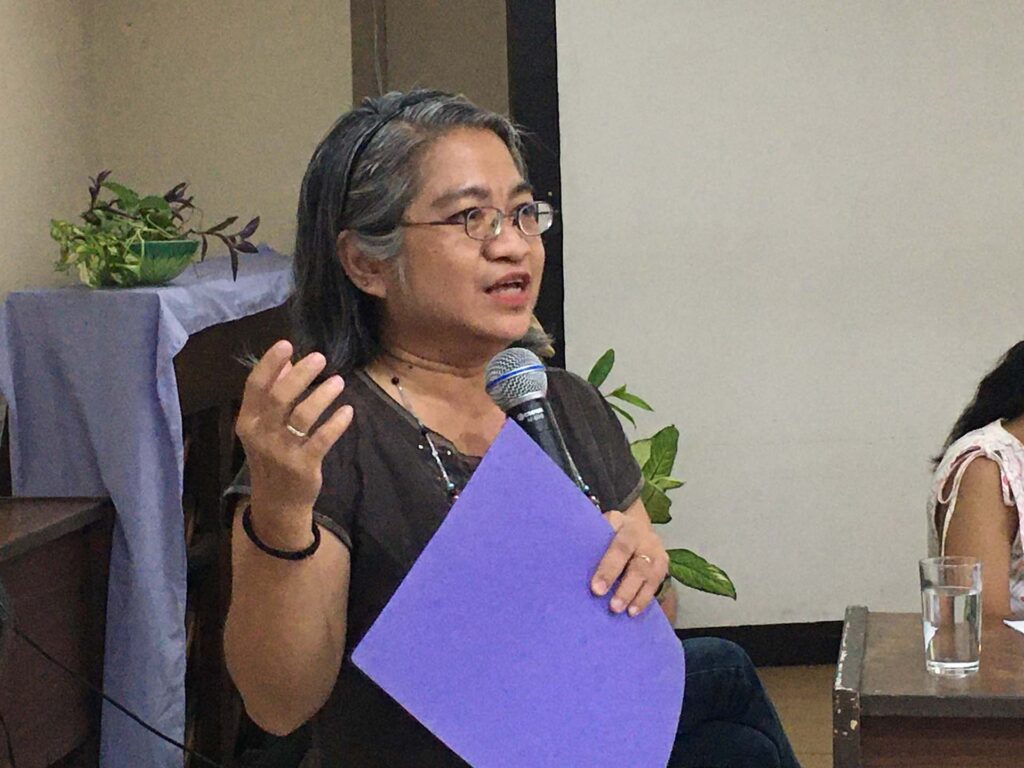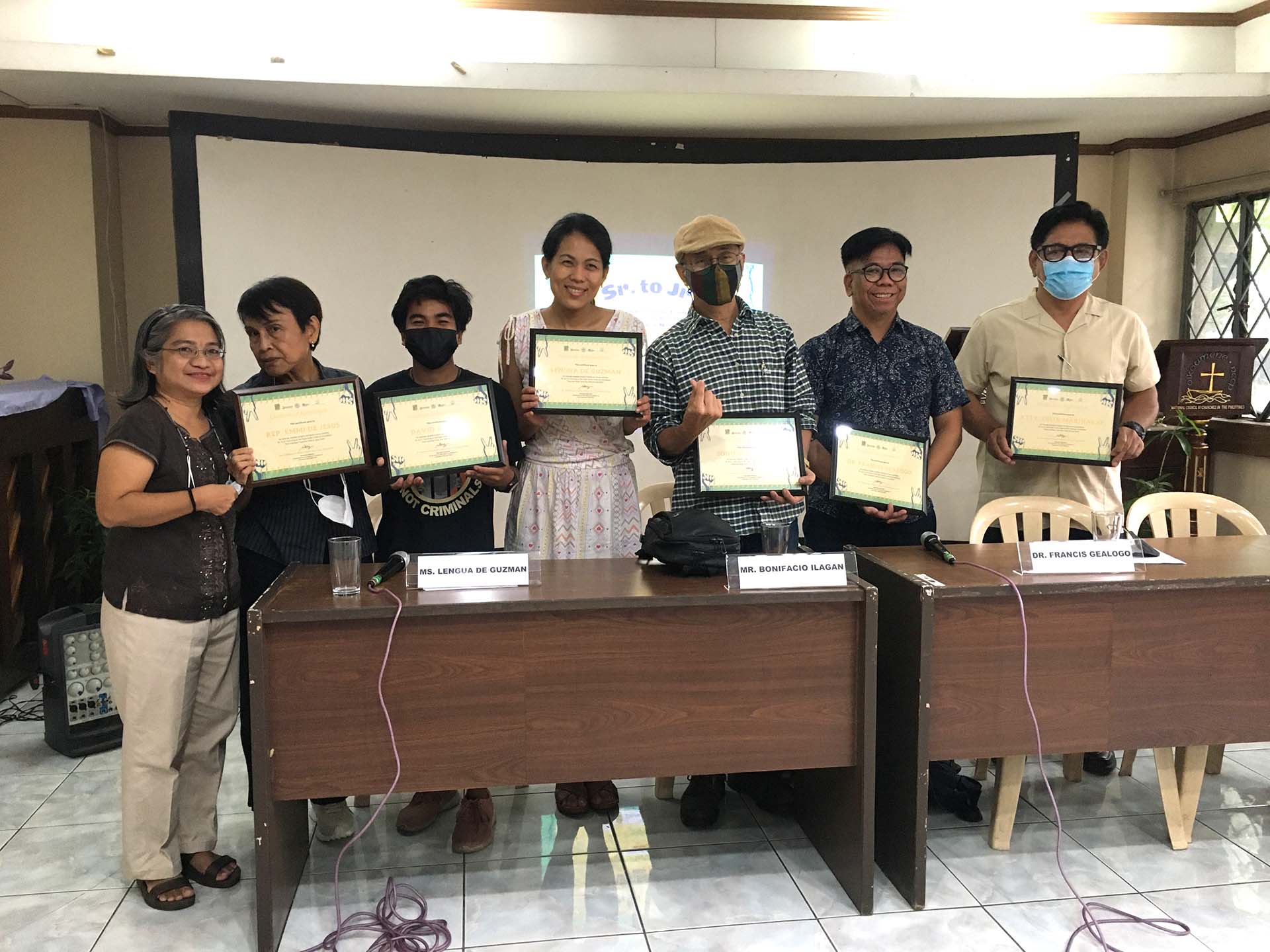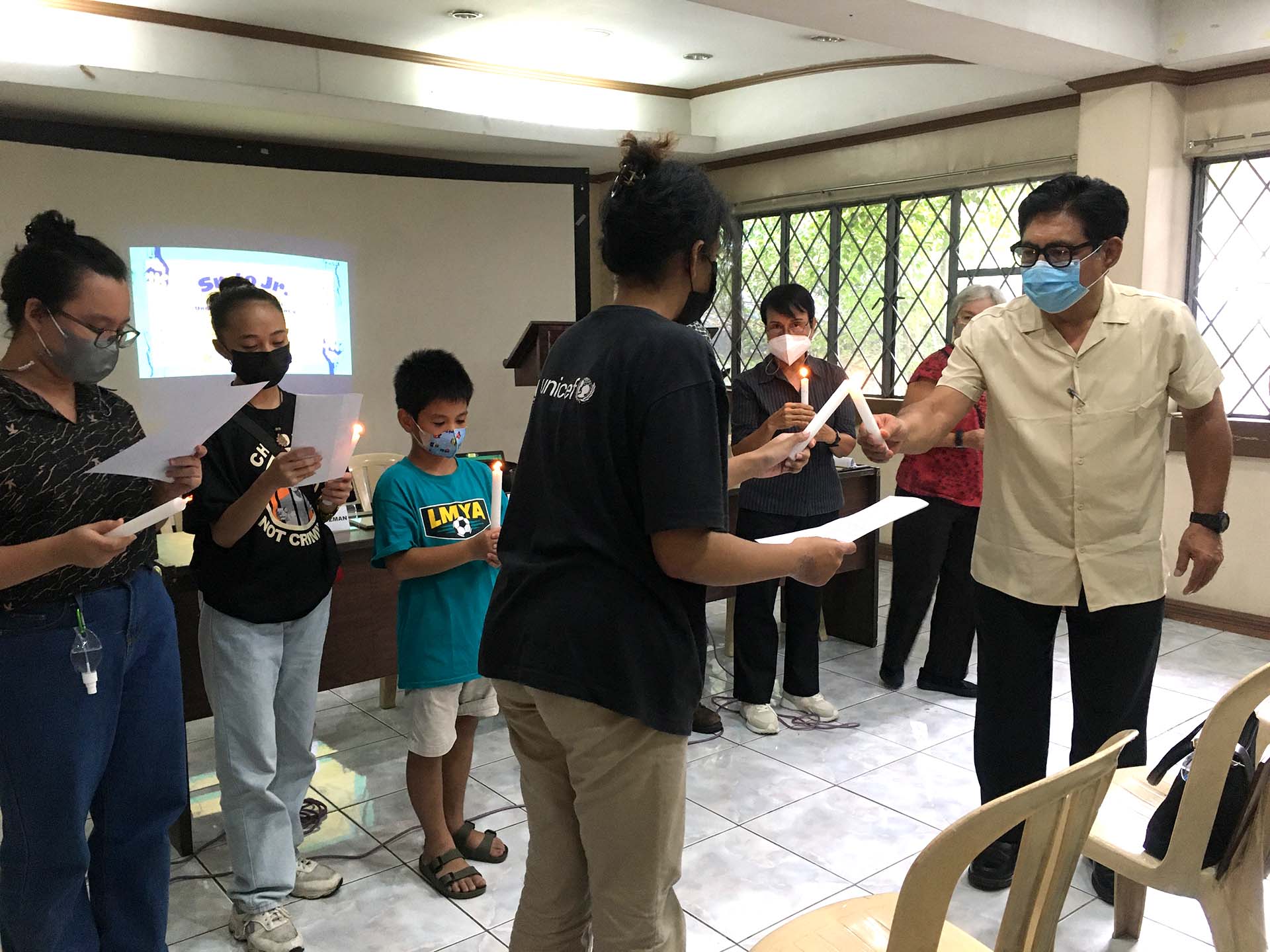Martial Law veterans share stories and experiences to child rights advocates
July 7, 2022
Held a day before the oath taking of Ferdinand “Bongbong” Marcos, Jr. as President, Martial Law veterans met with childs rights advocates to provide inspiration from the experiences of those who endured and struggled under a Marcos presidency and those who recently fought against their return to power and to unite on the need to continue and intensify collective vigilance and action in promoting human rights, democracy and good governance.

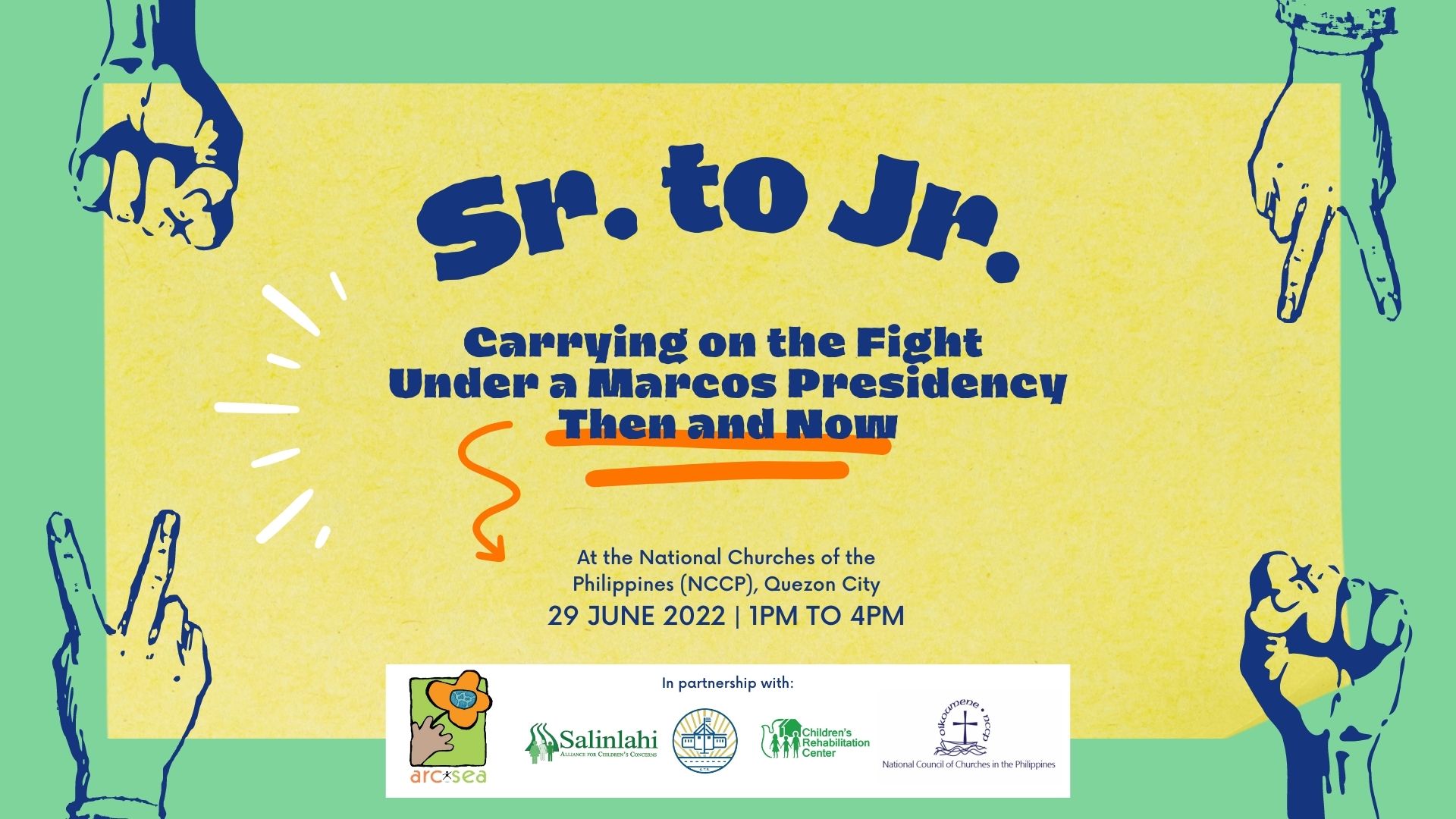
“I was a Martial Law baby. Our people struggled and won victories then, even under the iron hand of Martial Law. I’m looking forward to the victories we will win under the administration of a dictator’s son.”
This was the statement of Ma. Esmeralda de la Paz-Macaspac, Executive Director of the Association for the Rights of Children in Southeast Asia (ARCSEA) in a forum that gathered children’s rights advocates and Martial Law activists last June 29, in Quezon City.
Held a day before the oath taking of Ferdinand “Bongbong” Marcos, Jr. as President, the forum entitled Sr. to Jr.: Carrying On the Fight Under a Marcos Presidency Then and Now sought to provide inspiration from the experiences of those who endured and struggled under a Marcos presidency and those who recently fought against their return to power and to unite on the need to continue and intensify collective vigilance and action in promoting human rights, democracy and good governance.
“After the elections, many were apprehensive of the incoming Marcos-Durterte administration. We have lessons learned from the experience of activists who fought the dictatorship. Their presence should inspire us to cast away our fears and strengthen our resolve that there won’t be a repeat of the previous Marcos regime which is among the darkest periods of our country’s history,” said Macaspac.
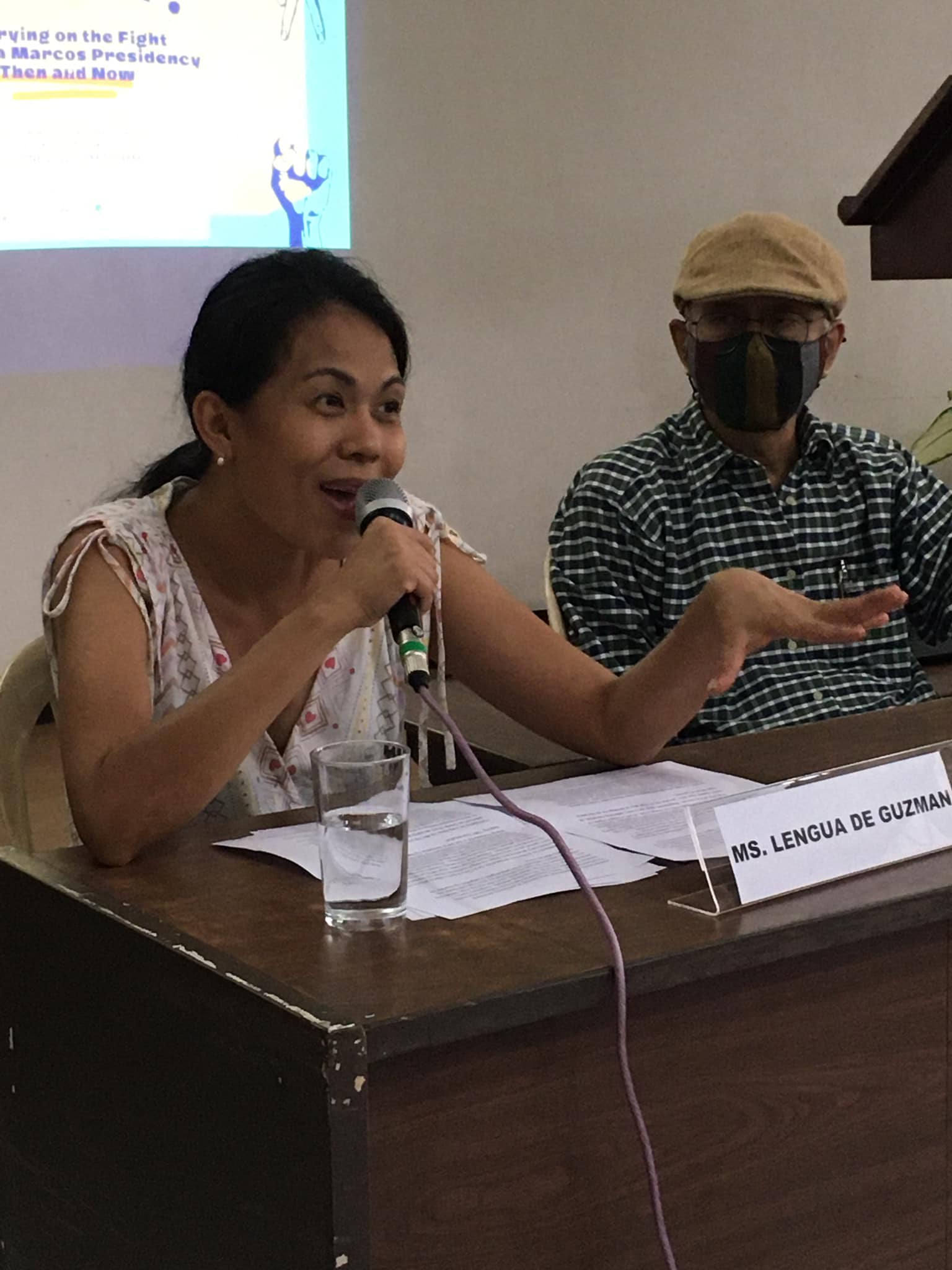
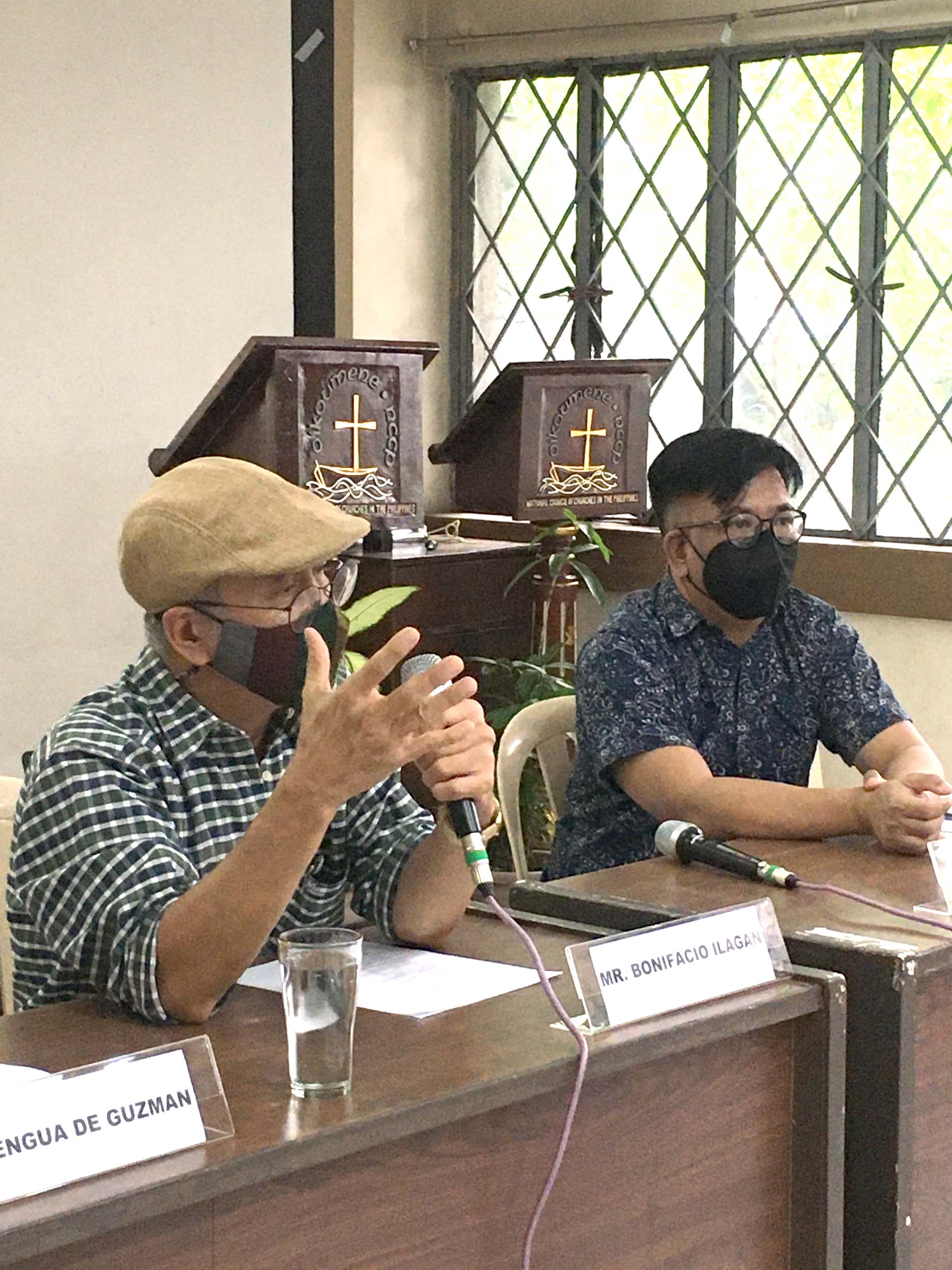
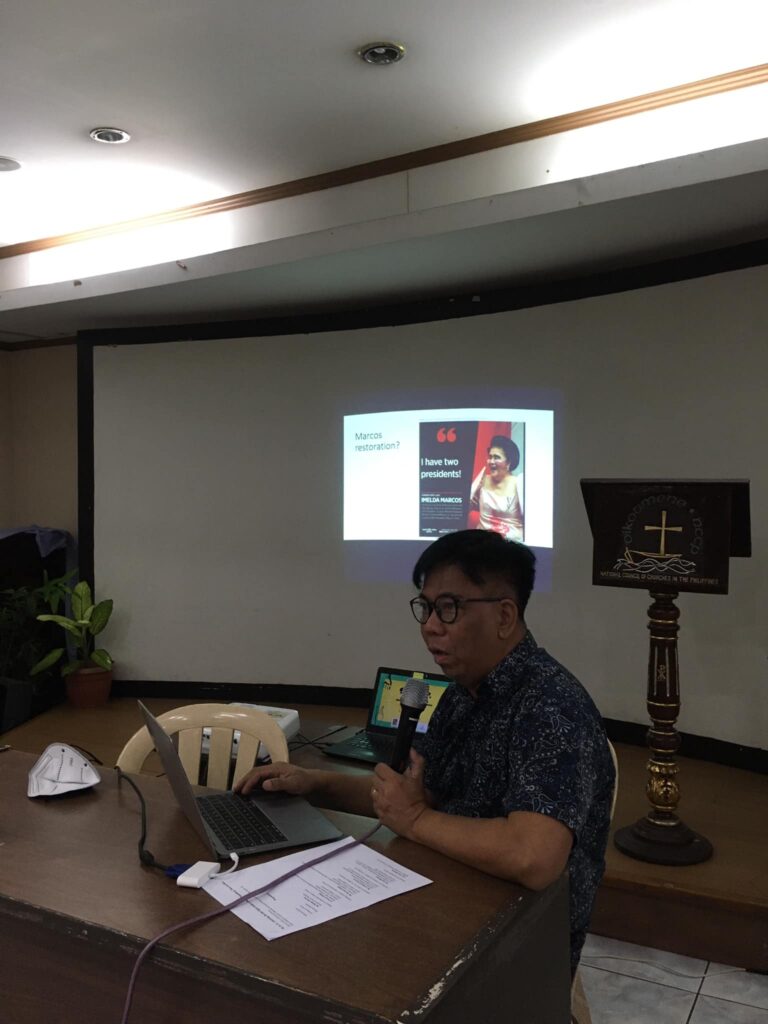
Activists’ daughter
Lengua de Guzman, current Director for Human Rights of Kilusang Mayo Uno shared recollections from her childhood as a daughter of activists during Martial Law.
“I was always living among friends and relatives and whenever I was with my parents, we were always on the move, never staying at one place for a long time. We were NPAs, no permanent address because my parents have dedicated their lives organizing communities and grassroots organizations while evading harassment, surveilance, and arrest by authorities,” said de Guzman.
She added that even at a young age, this taught her that the best form of resistance against the dictatorship and other forms of abuse is through collective action and trust in the masses.
“Tulad noon, ang tungkulin nating lahat, kahit tayo’y mga bata, na lumahok sa gawain at laban ng masa, matuto mula sa kanila at maglakbay kasama nila (Like before, the task of all including children is to integrate with the masses and journey with them in their struggle),” she said.
The True, The Good, and the Beautiful
For his part, Campaign Against the Return of the Marcoses and Martial Law (CARMMA) convenor Bonifacio Ilagan discussed how the Marcoses used culture and the arts to advance their interests.
“Many believe Philippine culture and the arts blossomed under Marcos. The Cultural Center of the Philippines, the Folk Arts Theater and the Film Center were built by the Marcoses. They sponsored cultural celebrations such as the Manila International Film Festival, the boxing match Thrilla in Manila between Muhammad Ali and Joe Frasier, the Miss Universe Beauty Pageant and various concerts from international artists,” said Ilagan.
He explained however, that while the Marcoses said they wanted the country to be a center of the arts and culture, the reality is that they were using the arts to hide the reality and the real conditions of Filipinos.
“Whenever the country hosts guests, urban poor communities were covered-up by walls and billboards to hide the various problems faced by the country,” said Ilagan.
“Imelda famously had a standard which she used to promote culture, which is ‘the true, the good, and the beautiful.’ That should also be our guide, promote The True, which is that Filipinos continue to suffer, The Good, which is our collective struggle, and The Beautiful, which is the better society we envision,” he said.
Disinformation
Meanwhile, Dr. Francis Gealogo, Professor of the Department of History, Ateneo de Manila University Loyola Schools and Chairperson of Act Teachers Partylist challenged those present to fight historical revisionism and disinformation.
“Misinformation is a common feature of autocratic leaders such as Hitler, Mussolini, and Marcos Sr., It is alarming that the incoming government has won by distorting what really happened during Martial Law,” he said.
He called on those present to help in the fight against disinformation.
“Fact checkers can only do so much. We need the youth, who are very active in social media to help fight the spread of disinformation by sharing posts from fact checkers and historians,” he said.
Continue the struggle
Macaspac challenged those present to inspire other Filipinos that were motivated by the recent elections to stand up.
“Marcos and Duterte were not the only winners of the elections. Thousands standing up for justice, human rights, good governance, and the rights and welfare of the marginalized is a victory of the people. Our task as advocates is to inspire those who stood up to continue the struggle even after Marcos is sworn-in,” said Macaspac.
The forum was sponsored by ARCSEA together with other children’s rights organizations Children’s Rehabilitation Center (CRC), Salinlahi Alliance for Children’s Concerns, Streets to Schools (STS), and the National Council of Churches in the Philippines (NCCP). █

